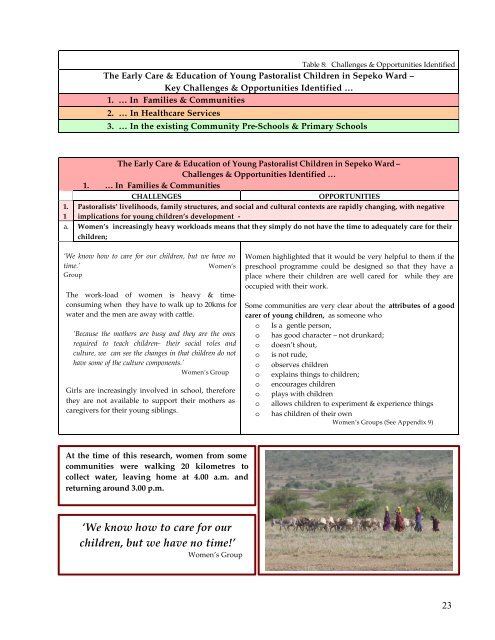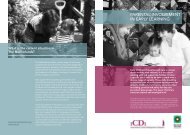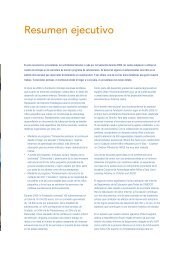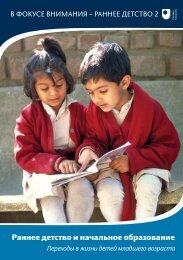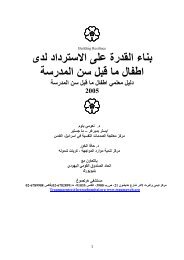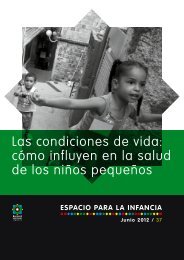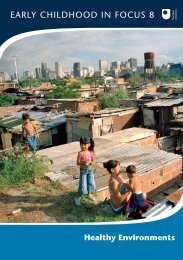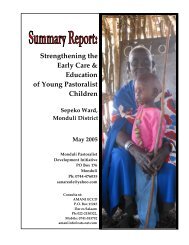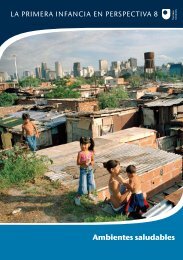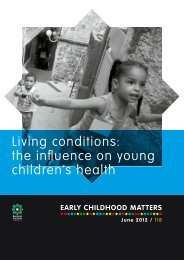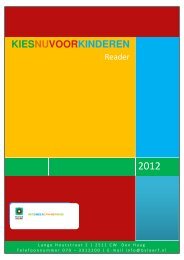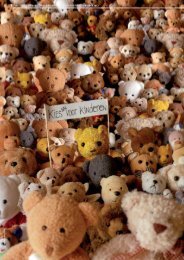Report - Bernard van Leer Foundation
Report - Bernard van Leer Foundation
Report - Bernard van Leer Foundation
Create successful ePaper yourself
Turn your PDF publications into a flip-book with our unique Google optimized e-Paper software.
Table 8: Challenges & Opportunities IdentifiedThe Early Care & Education of Young Pastoralist Children in Sepeko Ward –Key Challenges & Opportunities Identified …1. … In Families & Communities2. … In Healthcare Services3. … In the existing Community Pre-Schools & Primary Schools1.1The Early Care & Education of Young Pastoralist Children in Sepeko Ward –Challenges & Opportunities Identified …1. … In Families & CommunitiesCHALLENGESOPPORTUNITIESPastoralists’ livelihoods, family structures, and social and cultural contexts are rapidly changing, with negativeimplications for young children’s development -a. Women’s increasingly heavy workloads means that they simply do not have the time to adequately care for theirchildren;‘We know how to care for our children, but we have notime.’Women’sGroupThe work-load of women is heavy & timeconsumingwhen they have to walk up to 20kms forwater and the men are away with cattle.‘Because the mothers are busy and they are the onesrequired to teach children– their social roles andculture, we can see the changes in that children do nothave some of the culture components.’Women’s GroupGirls are increasingly involved in school, thereforethey are not available to support their mothers ascaregivers for their young siblings.Women highlighted that it would be very helpful to them if thepreschool programme could be designed so that they have aplace where their children are well cared for while they areoccupied with their work.Some communities are very clear about the attributes of a goodcarer of young children, as someone whoo Is a gentle person,o has good character – not drunkard;o doesn’t shout,o is not rude,o observes childreno explains things to children;o encourages childreno plays with childreno allows children to experiment & experience thingso has children of their ownWomen’s Groups (See Appendix 9)At the time of this research, women from somecommunities were walking 20 kilometres tocollect water, leaving home at 4.00 a.m. andreturning around 3.00 p.m.‘We know how to care for ourchildren, but we have no time!’Women’s Group23


